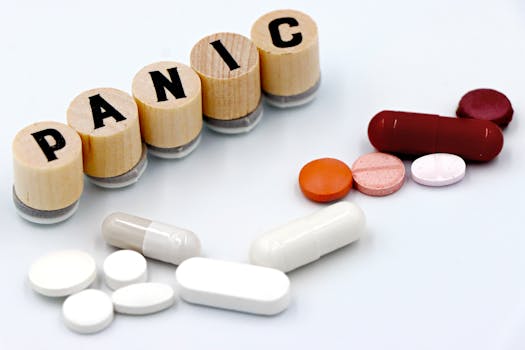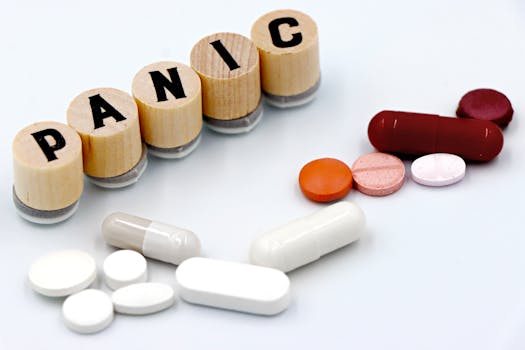Experiencing a sense of coldness in your chest can be alarming, especially if it’s linked with anxiety. Many individuals report a “chilly” or “icy” sensation when they are anxious, which may be accompanied by other symptoms like shivering or feeling cold throughout the body. Understanding how anxiety might lead to such sensations is essential for managing and alleviating these discomforts.
What Causes Coldness in Chest Anxiety?
Anxiety can trigger a range of physical symptoms, including the sensation of coldness in the chest. This can happen due to the body’s “fight or flight” response, which redirects blood to vital organs, leaving extremities and sometimes the chest area feeling cold. Stress can also exacerbate this response, causing a person to experience a sudden cold sensation in the chest.
During an anxiety attack, some people describe feeling cold and shaky. This is often due to increased adrenaline levels, which can cause shivering and a general feeling of coldness, affecting how the heart and chest feel. Stress and anxiety are powerful stimuli that can impact your body’s temperature regulation and perception.
Symptoms Accompanying Coldness in the Chest
The cold feeling in the chest often comes along with other symptoms of anxiety, such as rapid heartbeat, breathlessness, and dizziness. Some individuals report a menthol feeling in their chest or a minty sensation in the stomach during anxious moments. These sensations might also extend to experiencing shivering or cold flashes and anxiety throughout the body.
It is crucial to understand that these symptoms, while uncomfortable and sometimes frightening, are often benign and directly related to anxiety. However, if these feelings persist or worsen, consulting a healthcare professional is advisable.
Can Stress and Anxiety Trigger Cold Sensations?
Many wonder, “Can stress make you feel cold?” or “Does stress make you cold?” The short answer is yes. Both stress and anxiety can lead to a cold sensation, as they influence your nervous system’s functioning. This reaction is why some people feel cold when anxious or notice their chest feels cold inside during stressful periods.
In stressful situations, the body’s response can mimic exposure to cold environments. As the body prioritizes blood flow to essential muscles for escaping danger, it may limit blood flow elsewhere, leading to feeling cold stress or a heart that feels cold.
Managing and Relieving Coldness in Chest Due to Anxiety
There are several strategies you can employ to relieve the sensation of coldness in your chest caused by anxiety. Breathing exercises can be highly effective. By focusing on slow, deep breaths, you can calm your nervous system and reduce anxiety symptoms.
Other methods include engaging in regular physical activity, maintaining a balanced diet, and ensuring adequate rest. These lifestyle habits can significantly decrease overall anxiety and improve how your body regulates temperature. Consider reading more about ways to manage anxiety in our article on how to reclaim focus and reduce anxiety.
When to Seek Medical Advice
While coldness in the chest anxiety is generally harmless, it is vital to seek medical advice if the sensation is new, persistent, or accompanied by severe symptoms like chest pain or difficulty breathing. A healthcare professional can rule out other possible causes and provide appropriate treatment or refer you to a specialist if necessary.
Coldness in Chest Anxiety: Final Thoughts
Coldness in the chest anxiety is a common, yet discomforting symptom for many experiencing anxiety. Understanding its connection to stress and recognizing the accompanying symptoms are crucial steps in managing it effectively. Always consider professional guidance when in doubt and explore lifestyle strategies to manage anxiety and its physical expressions.
- Anxiety can cause cold sensations in the body.
- Breathing exercises can help manage anxiety symptoms.
- Engaging in regular physical activity can improve overall anxiety levels.
- Stress management is key to reducing physical symptoms like coldness in the chest.
- Consult a healthcare provider if symptoms persist or worsen.
Can anxiety cause cold sensations in the chest?
Yes, anxiety can lead to a cold feeling in the chest as part of the body’s response to stress. This response affects blood flow and temperature regulation.
What are some immediate ways to alleviate coldness in the chest due to anxiety?
Immediate relief can be sought through deep breathing exercises, grounding techniques, and warmth application to the affected area.
Should I be concerned about the cold sensation in my chest?
While generally harmless when related to anxiety, persistent cold sensations should be evaluated by a healthcare provider to rule out other causes.
How does stress contribute to feeling cold?
Stress activates the ‘fight or flight’ response, affecting blood flow and temperature perception, which can lead to feeling cold.
Where can I find more detailed information on managing anxiety-related symptoms?
For more detailed information, visit reputable health resources such as Wikipedia or consult with healthcare professionals.






